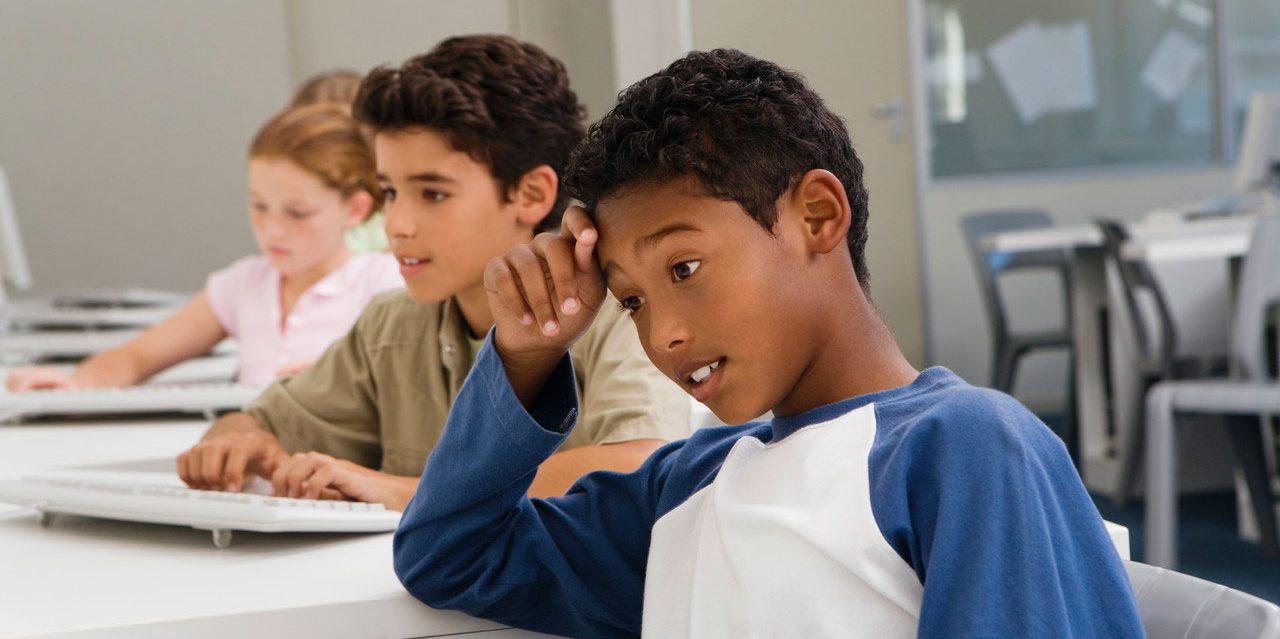How to Recognize Signs of Stress in Children

Establishing an open relationship and being willing to listen are important for determining signs of stress in children and helping them calm down.
A stressed-out child needs an outlet, a sort of safety valve to release the pressure, and that’s where you come in.
Signs of stress in children
Your child may be stressed if he has mood swings, acts out, changes in sleep patterns, or starts wetting the bed. Sometimes stomachaches or headaches are symptoms. Your child may even start having trouble concentrating at school, be withdrawn, or spend a lot of time alone.
YOU MIGHT ALSO LIKE: How Not to Give Your Child Guilt
How to help lower your child's stress
You can apply plenty of specific tips to help your children cope, but the most important may be instilling a comfort level in your relationship. That way, they find it natural to open up and will talk about what’s bothering them.
“You need to make sure you remain in contact, are checking in, and spending time with your kids,” says Wheaton, IL., child psychologist Todd Cartmell, PsyD, author of “8 Simple Tools for Raising Great Kids.”
“Ask about their day, how things are going at home, at school and with friends,” he says. “If your kids are used to talking with you have the pathway paved.”
The flipside of the same concept is to just listen instead of launching into advice or a lecture. Just let them unload in whatever way they express themselves.
Cartmell says it’s just as important to help you kids “know what’s true.” Sometimes the stress isn’t coming so much from the circumstances involved, but from how the way your child perceives them. All people, including adults, are not what they think. The mind never shuts up. That voice inside your head can lead to a litany of untrue thoughts that can cause high stress.
Another psychologist, Amy Przeworski, PhD, says your kids should be encouraged to face their fears and deal with them.
Przeworski, assistant professor in the Department of Psychological Sciences at Case Western Reserve University, writes in Psychology Today that avoiding fears makes the stress linger. But faced down, the stress will reduce itself naturally over time.
YOU MIGHT ALSO LIKE: Don’t Guilt Trip Your Kids about Exercise
It’s important that your child knows it’s okay to be imperfect and to make mistakes, she adds. At the same time, focus on the positives, or a glass half-full approach.
Be a role model
You are you kids’ role model. Whether you know it or not, they are always watching how you cope with your own stress. Given that, it’s important to know how to positively deal with your own stress, remain calm, persevere, and not give up.
That builds kids who are resilient, face fear and stress with courage, and solve problems. Such brave behavior should be rewarded in some way, Przeworski says. That means praise, a hug, a sticker, or an ice cream cone.
“This is not bribery if you establish this as a motivator prior to your child being in the situation. If you reward behaviors your child will engage in them more often,” she says.
Cartmell suggests taking a page from the adult book of coping by teaching your child how to calm down and relax.
That could be as simple as taking deep breaths, or practicing a prescribed cycle of meditation. Or it could be teaching your kids to stop talking and just slow down.
Przeworski also suggests teaching your kids how to use relaxing imagery, anything from swinging on a hammock in the backyard to lying on a beach and listening to the waves come in. These images, with practice, can become go-to helpers that will work quickly and effectively.
Distraction, while not a solution, can help break the chain of stress and keep it from continuing to build. Younger children without the cognitive skills for sustained imagery might turn to a video game, Cartmell says.
Sometimes, Cartmell adds, kids don’t know when to pull back. That doesn’t mean they should quit something when they’re stressed, but six honors classes, marching band practice, the chess club, and athletics all at once can be overwhelming.
“The stress doesn’t necessarily come from bad things, but can come from too many good things,” he says. “There’s just so much you can take on. Your kids can end up feeling overwhelmed all the time. It’s critical that you pay attention to that and help your kids maintain a balance.”
Pay attention to your child's health
Finally, remember that an otherwise healthy child won’t likely become physically ill by everyday stress.
“But the immune systems of children who are overly fatigued, deficient in key nutrients, or don't get enough exercise may become weakened due to stress. In stressful situations these children are more susceptible to illnesses, such as the common cold and the flu,” says an article in Parents magazine.
“Make sure your child sleeps well, eats right, and gets a fair amount of exercise. This will help ensure that her body is better equipped to handle feelings of stress and ward off illnesses.”
You Might Also Like: Is Your Child Getting the Right Amount of Sleep?
Updated:
February 27, 2020
Reviewed By:
Janet O’Dell, RN